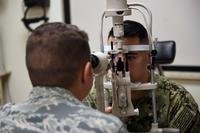A recent VA Compensation Service Bulletin sought to eliminate processing ambiguity relating to PTSD claims. Regional Offices nationwide have been largely critiqued because of erratic application of rating criteria. The current bulletins are intended in part to decrease the overall 23 percent of botched claims processing.
Anyone paying attention to veterans’ issues has heard horror stories from veterans who attempted to gain service connection for PTSD despite possessing medals and records showing their unit came under hostile fire in Iraq and Afghanistan. My friend Jim is one of these. Once denied, many of these veterans give up on the appeals process because it forces them to revisit the trauma every time the issue is revisited.
If you are one of these veterans or know one who is, here’s what you need to know about the bulletin and how it can affect your claim for disability compensation.
First, the 2010 change to the VA regulation governing PTSD disability claims is intended to encompass all PTSD situations from military service. This means veterans who were assaulted, either sexually or physically, while on active duty may be eligible for this benefit if the stressor is documentable or contained somewhere within their service medical records. The regulation, 38 CFR 3.304(f)(3) also allows for the veteran’s lay statement to satisfy the establishment of an “occurrence” under specific criteria. The occurrence must be:
- “related to fear of hostile military or terrorist activity, and
- a VA psychiatrist or psychologist, or contract equivalent, confirms that the claimed stressor is adequate to support a diagnosis of PTSD, and
- the veteran’s symptoms are related to the claimed stressor.”
This solution seems relatively straightforward; however, the jury is out as to how well the VA is implementing the criteria.
Second, the process may prove lengthy because the VA has implemented a case-by-case review of the facts surrounding each claim. The VA claims representative will need to verify that the facts given by the veteran are true, including duty locations and service or campaign medals, prior to the veteran being scheduled for an exam. Thus, certain medals are now sufficient to schedule a PTSD examination. For example, VA Compensation has concluded that a veteran’s receipt of the Vietnam Service Medal or Vietnam Campaign Medal is sufficient proof that the veteran service in a hostile military environment. This also includes veterans aboard ships in “blue water.” Therefore, veterans with either of these medals should be able to pass the first threshold of proving the occurrence. Once the claim is verified, an examination should be scheduled.
Third, veterans who have already been denied service-connection for PTSD, but who have evidence similar to that discussed above may wish to re-evaluate their initial claim and/or denial. Those veterans with old disabilities may want to revisit their condition for an increase. Either way, the process starts by knowing what is within your claims file. See “Beat Denials & Lowball Ratings” to begin researching your own claim. The first step is filing a Freedom of Information Act (FOIA) request for your file. The second should be finding a quality Veterans Service Officer or Veterans Law attorney in your area who you trust.



